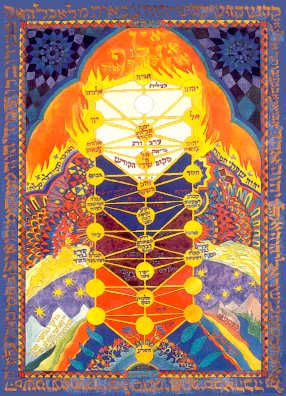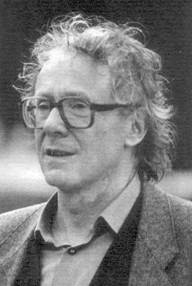René Clemencic as a
Composer
MISSA MUNDI (1981)
Latin mass for 5 singers (S, MS, A, T, B), church choir, organ, 3 trumpets, 4 trombones, strings, 3 percussionists
c. 30 min., première: Carinthian Summer
Folk mass with the participation of a church choir of any size, singing in unison. The mass employs simple Gregorian melodies from today’s Roman Catholic hymnal "Gotteslob". With the help of devices such as diminution, augmentation, retrogression etc., these melodies are used to create up to seven-part tonal complexes. In keeping with ancient customs of more spontaneous times, extramusical means are sometimes employed (chirping of birds at the birth of Christ, a kind of "sacred springtime" interrupting the year’s rigidity of death, noise and other sounds to portray the "terrible confusion of nature" faced with the death of God etc.). Singing glasses are also used.
UNUS MUNDUS (1986)
Instrumental oratorio for brass, percussion and sounds of nature. 3 trumpets, 3 trombones, tuba, 3 percussionists
c. 26 min.; première: Wroclaw, Festival of Contemporary Music
Introitus - Flores - Meditatio - Cantus Choralis - Coniunctiones - Canon - Coincidentia oppositorum - Mors - BACH - Dithyrambus
Here may be heard, as it were, a journey through life, or a cosmic cycle, or even a single day from daybreak with the mothers to "death and transfiguration". The recorded inserts introduce such elements as air, water and fire. In the section "Coincidentia oppositorum" - the hyper-rational coincidence of opposites - are heard the voices of birds, the dwellers of the air. Air, of course, is considered both as a symbol and in dreams to be the element of connection, of the meeting of opposites.
DRACHENKAMPF / THE COMBAT OF THE DRAGON (1987)
Ballet pantomime. 3 trumpets, horn, trombone, tuba, 2 percussionists
c. 74 min.; première: Vienna, Spectaculum
Creatio hominum, draconum, virginum - Infantia herois - Infantia draconis - Peregrinatio - Heros - Draco - Virgo - Agon - Transformatio - Coniunctio - Extasis - Amen
The acoustical counterpart of a wedding ritual, psychogramme or cosmogramme of the holy unity of opposites. Seen externally, everything happens here in this fantastic world, an allegorical likeness of the other, our inner world. Thus everything is within us and we are everything! We ourselves are dragon, hero and princess.
CD: DRACHENKAMPF (LE COMBAT DU DRAGON) Accord 200232/MU/750
OPUS FÜR FLÖTE UND STREICHER / OPUS FOR FLUTE AND STRINGS (1991)
Recorder (SSS,SS,A,B), strings
c. 25 min.; première: Menuhin Academy, Blonay
Aller Anfang ist schwer - Die Flöte - Ostinatio - Labyrinth - Die Schaukel - Luft von anderen Planeten - Dionysos
Virtuoso recorder concerto with aleatoric elements, rhythmic connections etc.
Use of many avant-garde recorder techniques such as chords, sputato, flageolet etc.
 KABBALA (1992)
KABBALA (1992)
Oratorio in the Hebrew language. 5 singers (2 CT, 2 T, B), cornetto or trumpet, 3 trombones, 2 percussionists
c. 70 min.; première: Mittelfest, Cividale
Prophetische Kabbala/Vokalpermutationen mit dem Tetragrammaton - Zimzum - Zehn Sefiroth/10 Gottesnamen -
Die 22 heiligen Buchstaben - Meditation über den Anfang und den großen Gottesnamen - Bruch der
Gefäße - Prophetische Kabbala/Die 72 Buchstabentriaden - Rückkehr nach vorne/Um
Mitternacht/Weckruf - Krieg der Söhne des Lichtes und der Finsternis - Hallelujah/Rückkehr ins
himmlische Jerusalem
The Kabbala, literally "tradition", namely the tradition of godly things, is Jewish mysticism (G. Sholem). In its most profound depths, however, it extends far beyond anything specifically Jewish in the conventional sense and addresses humankind as such and its path through the world, its fundamental "existential dereliction", its fundamental exposure (= exile!), its distance from God and from its own true self, its existential development and finally the "return to the front" to the heavenly Jerusalem. Like no other, Jewish wisdom and tradition have formulated and expressed all our deepest concerns. The ancient Hebrew language, in which every letter in the unity of its character is at the same time number, sign and sound, is better suited than any other to allow us to find the keys to the gates of life. Its concrete wisdom has almost always been more or less alive in the great artists and thinkers of the Occident. The music, for example, of J.S. Bach would be inconceivable without it. In this oratorio I have used various kinds of solmisation and the acoustic transformation of Kabbalistic numerical structures to a large extent to find, not invent, my tonal material. In keeping with the existential meaning of the text, however, the essential character of this oratorio is vigorous, purposeful and dramatic.
CD: KABBALA col legno/WW 1CD 31861
DER BERG / THE MOUNTAIN (1993)
Chamber opera on a libretto by Konrad Bayer. 4 singers (2 CT, 2 T), 3 trumpets, 3 trombones, horn, tuba, 3 double-basses, 3 percussionists
c. 70 min.
CONTENTS: Two people climb a mountain. A higher authority, as it were, observes the two of them and comments, in part ironically, in the manner of Zen Buddhism. The mountain-climbers become lost in fog at night. When they finally arrive at their destination, they realise that they cannot stay there. Their place is the earth. They climb back down again and decide to "refresh themselves at an inn". The piece concludes with a big YES to creation. The mountain is transcendence, lost because it is exteriorised. Two are seeking. When two seek transcendence, it is found "between them". From the living, intellectual centre, every opposite is invalid, neutralised by unity. Above and below, past and future coinciding in a zero-dimensional centre, united in "eternal instant". "And if we go, we remain." "And we climb to the valley, and the valley is there and the summit is there."
STAGING: This should be done without concrete actors. All the singers are visible but do not really take part in the action, which should be represented by a kind of stage lighting.
 KLAVIERTRIO / PIANO TRIO "JERUSCHALAJIM" (1995)
KLAVIERTRIO / PIANO TRIO "JERUSCHALAJIM" (1995)
Violin, violoncello, piano
c. 15 min.; première: Festival "Wien modern"
An attempt to create a relationship, within the framework of a tonal meditation, between the Kabbalistic concept "Jerusalem" (phenomenon of the fundamentally important in its perfection, centre of the centre of the centre), the concept of the "Trinity" and the persons that constitute it. The composition consists of three steps: manifestation of the idea of Jerusalem - concretisation of the acting persons - connection of these elements and parting epilogue.
APOKALYPSIS (1995 - 1996)
Oratorio in ancient Greek. Complete setting of The Revelation to John (New Testament).
5 singers (2 CT, 2 T, B), women’s choir, 3 trumpets, 5 trombones, horn, tuba, 7 double-basses, 5 percussionists
c. 190 min.; première: Festival "Wien modern"
The millennia-old traditions of Hebrew and Christian mysticism reveal an alarming and very present sense of prophetic revelation in the Old and New Testaments: fundamentally it is always a matter of un-covering (Greek: apo-kalypsis) ourselves, our respective now! "Doomsday is always now!" After the birth pangs and necessary terror of becoming ourselves, which in the Revelation (Apocalypse) to John takes place on various levels, often engaged, as it were, with one another, follows a "becoming whole", a healing, the healing of ourselves, the "New Jerusalem". Unity of this world and the next, feeling and understanding etc. This is apocalypse not in an unknown distant, sensational future but rather here and now, in our hearts. With gripping and dramatic rhythms and sounds, the musical setting attempts to achieve a modern and timeless interpretation of the powerful text. Alongside the dramatic accounts and almost liturgical recitatives are demonic utterances, complex polyphonic structures, Kabbalistic numerical proportions etc. In the passacaglia-like final amen, almost all the themes of the entire piece are heard once again.
CD: APOKALYPSIS Arte Nova Classics/74321 72115 2
REISE NACH NINIVEH / JOURNEY TO NINEVEH (1999)
Oratorio for vocal ensemble. Based on the Book of Jonah, Chapters 1 and 2, Old Testament.
12 singers (3 S, 3 A, 3 T, 3 B)
c. 15 min.; première: Festival "Hörgänge", Vienna
The Book of Jonah is always relevant as the always-current history of humankind. Water is a symbol of time, the boat a symbol of one’s own self. It is a book about fleeing: flight from the essential, but also a programmed flight, as it were, which makes our life possible in the first place. The long journey to arrive at the goal of home. The "prodigal son", always in flight and always returning home, the boundless diversity of fragmented unity, which always returns to itself, to its origin, but in a purified and chastened form.
The biblical text is heard here simultaneously in several languages in order to suggest its general meaning, transcending nationalities: in the ancient Hebrew language, which is the only one containing the underlying numerical symbolism, in Greek and Latin as representatives of our Occidental Bible tradition and in my native German.
FEUERTRUNKEN / CONCERTO PER ARCHI / INTOXICATED WITH FIRE (2000)
Concerto for String Orchestra (7,7,6,5,4)
c. 22 min.; première: Naples, Caserta
String concerto in three movements
Longer first movement: a savouring of all instrumental combinations, whether as a solo within a specific group or in combinations of the individual groups. Second movement: 5 solo violoncellos over an ostinato bass played by the double-basses. Third movement: short, virtuoso epilogue.
STABAT MATER (2001)
S, CT, 5 strings, 5 brass
c. 35 min; première: Todi Arte Festival 2001
DAS HAUS / THE HOUSE (2004)
Piano Trio
c. 17 min; première: Gmunden 2004
DER SCHLÜSSEL ZUM PARADIES / THE KEY TO PARADISE (2004)
S, violin, piano
c. 20 min
MONDUNTERGANG / MOON SET (2006)
Operelle
S, MS, T, B, speaker, Vl, Vc, Kb, Fag, Pos, Hr, transverse flute, piccolo flute, Perc
c. 15 min; première: Innsbruck - Vienna, Feb. 2007
«Top of Page»
«Back to Startpage»

 KABBALA (1992)
KABBALA (1992) KLAVIERTRIO / PIANO TRIO "JERUSCHALAJIM" (1995)
KLAVIERTRIO / PIANO TRIO "JERUSCHALAJIM" (1995)